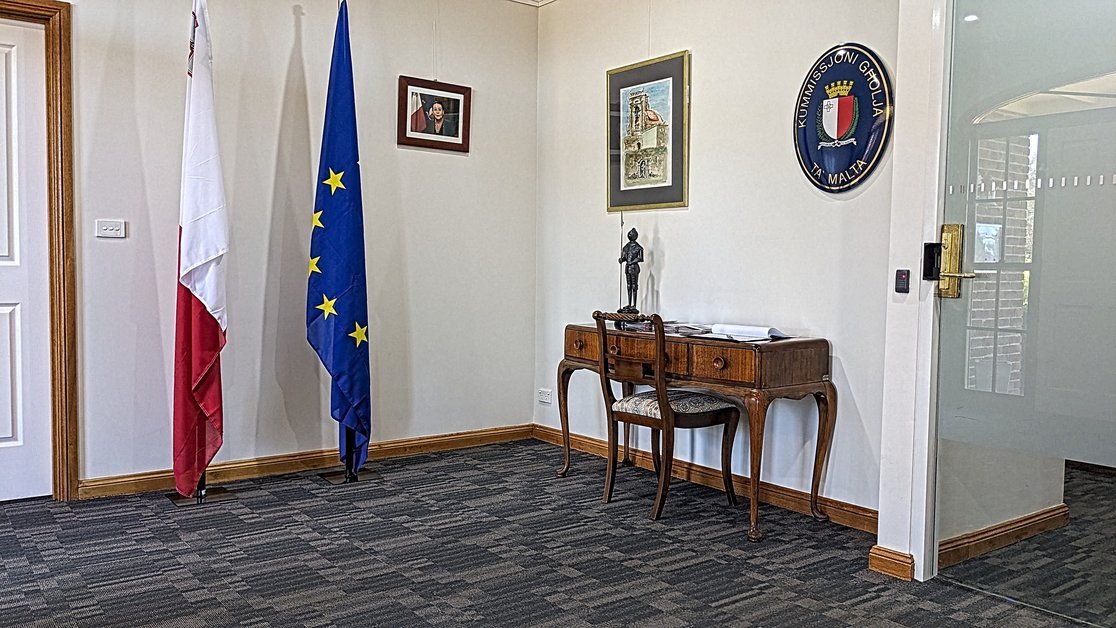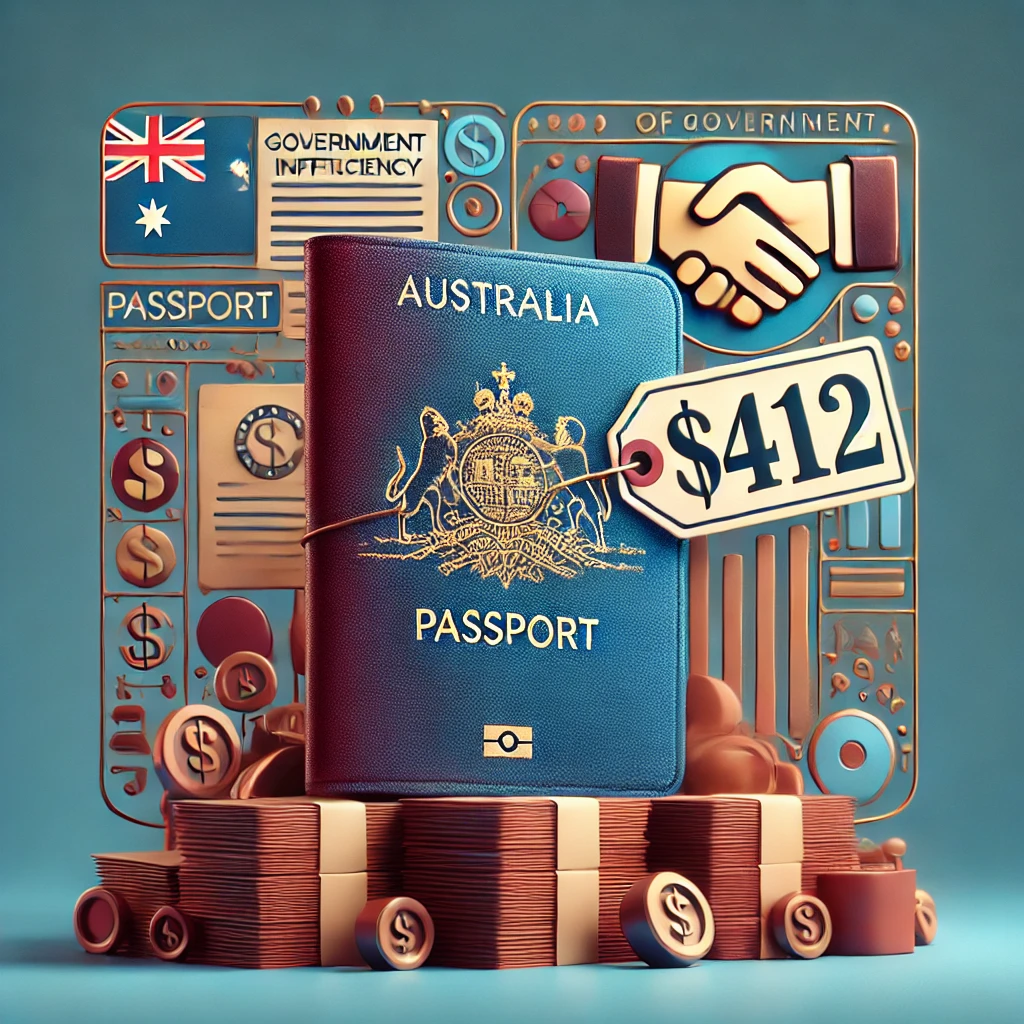With Brexit, my UK passport no longer provided access to Europe. If you’ve ever thought of holding a European passport and reconnecting with your Maltese heritage, the prospect of acquiring Maltese citizenship by ancestry is an exciting possibility. Malta, a small archipelago in the heart of the Mediterranean Sea, boasts a vibrant cultural tapestry and a history that stretches back thousands of years. With a Maltese passport in hand, you gain the freedom to live, work, and study anywhere in the European Union, along with the personal satisfaction of embracing a heritage that may be part of your family’s story.
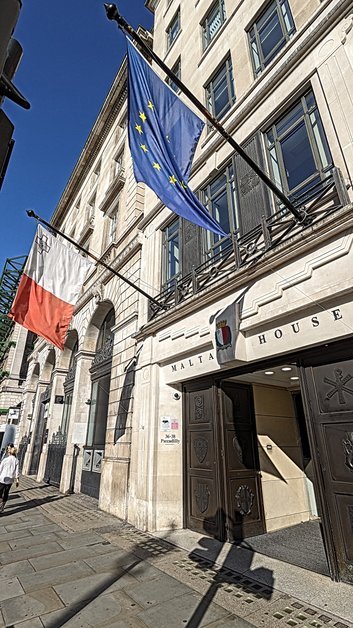
Below, you will find a detailed, fact-based guide about how I secured my Maltese citizenship and passport through ancestral ties. This overview covers the legal framework, eligibility requirements, application process, supporting documents, potential pitfalls, and practical tips. Whether your grandparents emigrated from Malta decades ago or your ancestry traces further back, this guide provides an in-depth look at the steps you need to follow and the resources available to help you achieve your goal.
Please note that this blog post is intended for informational purposes. For the most up-to-date and personalized guidance, always refer to official Maltese government resources (such as Identity Malta and legislation.gov.mt) or consult a qualified lawyer or advisor.
Understanding Maltese Citizenship by Ancestry
Maltese nationality law allows individuals to claim citizenship if they can prove direct descent from Maltese ancestors. Under the Maltese Citizenship Act (Chapter 188 of the Laws of Malta), several pathways enable you to secure a Maltese passport, including birth, registration, marriage, naturalization, and adoption. However, the rules specific to ancestry cater to individuals who have at least one direct family line from Malta.
Key highlights of this ancestral route include:
- You do not necessarily need to be born in Malta.
- You can qualify through your parents, grandparents, or sometimes through a great-grandparent, provided the lineage is consistent with Maltese nationality law.
- The process relies heavily on documented proof of Maltese ancestry, such as birth certificates, marriage certificates, and other civil status records.
For complete details on the law, refer to the Maltese Citizenship Act (Chapter 188) and any updates provided by Identity Malta, the national agency responsible for citizenship and passport matters in Malta.
Why Pursue Maltese Citizenship by Ancestry?
Before diving into the legal frameworks and documentation, it’s important to consider the advantages of having Maltese citizenship, especially if you already have emotional or cultural ties to Malta:
- European Union Membership
Malta has been a member of the EU since 2004. As a Maltese citizen, you enjoy the right to live, work, and study freely in any other EU country. This allows you to tap into a vast labor market, quality education systems, and various social benefits. - Visa-Free Travel
A Maltese passport is highly ranked in terms of travel freedom, granting you visa-free or visa-on-arrival access to numerous countries worldwide, including the Schengen Area. - Cultural and Personal Identity
Obtaining Maltese citizenship by ancestry can help you deepen your connection to your heritage. This emotional or familial tie often drives individuals to reclaim their roots. - Inheritance and Property Ownership
As a Maltese citizen, you gain simpler access to property ownership in Malta, which can be advantageous if you ever plan to buy property, retire, or invest on the islands. - Healthcare and Social Benefits
Maltese citizens can access a robust public healthcare system and other social welfare benefits, which can be a significant advantage for those planning to relocate.
Historical Context of Maltese Migration
Understanding how Maltese diaspora communities formed around the world can help you appreciate the ancestry application route. Over the centuries, many Maltese left their homeland for better economic prospects or as part of broader migration waves. Large Maltese communities formed in countries such as:
- Australia
- Canada
- United Kingdom
- United States
- Other European countries
If you have Maltese roots, it’s likely your ancestors emigrated from Malta during one of these periods. Exploring that history, gathering documentation from official archives, and connecting with family members are essential first steps in the journey toward Maltese citizenship.
Legal Framework for Maltese Citizenship by Descent
Maltese citizenship laws are encompassed in the Maltese Citizenship Act (Cap. 188) and subsidiary regulations. The primary sections relevant to citizenship by descent deal with whether you were:
- Born outside Malta to a Maltese parent who was also born in Malta
- Born outside Malta to a Maltese parent who obtained Maltese citizenship by birth or registration
- Descendant of a Maltese ancestor through marriage or adoption (under specific circumstances)
The laws have evolved over time, especially in relation to dual citizenship. Prior to 2000, Malta had more restrictive rules about dual citizenship, but amendments now allow it. Thus, you can often hold your existing citizenship without losing it when acquiring Maltese nationality.
You can find the official Maltese Citizenship Act text online at legislation.gov.mt. Identity Malta also publishes guidelines that break down eligibility requirements and application procedures.
Eligibility Criteria
To qualify for Maltese citizenship by ancestry, you generally need to establish proof of a direct line of descent from a Maltese citizen or someone who was deemed to be Maltese at the time of your birth (or your parent’s birth, etc.). Common scenarios include:
- Parent or Grandparent was Born in Malta
If your parent or grandparent was born in Malta and did not lose their Maltese citizenship before your birth, you may qualify.• For example, if your mother was Maltese by birth, you are likely eligible to register as a Maltese citizen.• If your grandmother was Maltese by birth, and your parent (child of the grandmother) maintained or acquired Maltese citizenship, you might be eligible through them.
- Parent or Grandparent Naturalized as Maltese
In some cases, if your ancestor naturalized as a Maltese citizen (rather than by birth), you may still qualify for citizenship by registration, depending on the dates and details of their acquisition of Maltese citizenship. - Multiple Generations Removed
If your family line to Malta extends back several generations, eligibility can become more complex. You may need to trace the lineage carefully to see if any ancestor lost or retained their Maltese citizenship. Generally, at least one parent or grandparent must have maintained Maltese citizenship to pass it down.
Because the law can be nuanced, especially for those multiple generations removed, it’s always wise to consult official guidelines or seek legal counsel for clarity.
Gathering the Required Documentation
Before filing any application, you will need a thorough compilation of supporting documents. While requirements can vary slightly depending on your individual circumstances, the most common documents include:
- Birth Certificates
• Your own birth certificate• Your parent’s or grandparent’s birth certificate (whichever establishes the Maltese line) - Marriage Certificates
• Certificates for each generation along the line of descent, if relevant - Passports and/or Identity Documents
• Copies of your own passport or ID• Copies of your ancestor’s passport or ID, if available - Proof of Residence
• Utility bills, bank statements, or other documents to confirm your current address - Affidavits or Sworn Statements
• Statements from close relatives attesting to the Maltese lineage, if required - Other Official Records
• Family registers, immigration documents, or citizenship certificates in the country your ancestor relocated to, indicating Maltese origin
It’s crucial to obtain officially certified copies and, if necessary, have them apostilled. An apostille is a specialized certification affixed to documents so that they are recognized internationally. If the original documents are not in English or Maltese, you will also need an official translation completed by a certified translator.
Where to Find Your Ancestor’s Records
Successfully applying for citizenship by ancestry hinges on documented proof. If your family has been away from Malta for decades, finding these records might feel daunting. However, several resources can help you:
- Malta Public Registry
The Public Registry in Malta maintains birth, marriage, and death records. You can request copies of these records by contacting the Registry directly or visiting servizz.gov.mt. - Archdiocesan Archives
If you need older records, particularly from before the early 20th century, church records might be useful. Maltese parishes kept thorough baptism, marriage, and burial records. - National Archives of Malta
For historical context, genealogical research, and older documents, the National Archives can be a valuable resource. - Genealogy Websites
While not an official source, genealogy platforms can sometimes help identify leads about births, marriages, and emigration. - Relatives and Community Associations
Extended family members may have critical documents. Maltese cultural clubs or associations in your current country of residence might also offer guidance toward local resources.
The Application Process
Once you have gathered all the necessary documentation, the next step is to file your application for Maltese citizenship by ancestry. In most cases, you will submit your application through Identity Malta, which oversees Maltese citizenship matters. The general process includes:
- Completing the Application Form
• The form for citizenship by descent is typically referred to as “Application for Registration” of a person as a citizen of Malta on the basis of descent. You can download the form from Identity Malta’s official website. - Paying the Application Fees
• Citizenship applications carry a fee. Confirm the exact amount and accepted payment methods with Identity Malta or via their website. For me and my family it cost AUD 480 for an adult and AUD 400 for a child. - Submitting Documentation
• Provide all required birth, marriage, and other official certificates in certified, translated, and apostilled form. - Review and Possible Interview
• Identity Malta officials will review your submission. They may request additional information if something is missing or unclear.• In some cases, applicants may be asked to attend an in-person or virtual interview to verify details. - Background Checks
• The authorities may conduct a background check to ensure there are no security or criminal concerns. - Decision and Oath of Allegiance
• If your application is approved, you may be asked to take the Oath of Allegiance, depending on your specific route. Once completed, you will receive a Certificate of Citizenship.
After receiving your Certificate of Citizenship, you can apply for a Maltese passport. Identity Malta also manages passport applications, and you will need to provide passport photos, personal details, and pay the relevant passport fee.
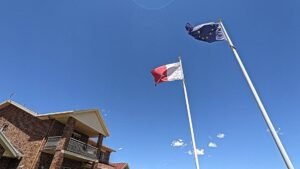

Common Mistakes and Pitfalls
When applying for Maltese citizenship by ancestry, several common pitfalls can delay or derail the process:
- Incomplete Documentation
Missing or improperly certified documents are a common reason for application rejections or delays. - Incorrect Translations
If you submit translations that are not officially certified or if the translation is inaccurate, your application may be put on hold. - Unclear Line of Descent
Failing to show a continuous line from your Maltese ancestor to yourself can lead to a denied application. - Lack of Apostilles
Remember to have documents apostilled where necessary, especially if they were issued outside Malta. - Fee Payment Errors
Double-check the exact amount and method of payment required. - Wrong Application Form
Identity Malta has multiple forms for different citizenship pathways. Ensure you are using the correct one.
Additional Considerations
- Dual Citizenship
Malta generally allows dual citizenship, but confirm with your home country’s laws to ensure you do not inadvertently forfeit any rights. - Timeframe
Processing times can vary, often taking several months, depending on the complexity of your case and the volume of applications at Identity Malta. - Renunciation or Loss of Maltese Citizenship
If an ancestor had renounced Maltese citizenship or was stripped of it, this could break the lineage claim. Investigate your family history thoroughly to clarify whether your ancestor remained a citizen. - Legal Assistance
Complex cases, especially those involving multiple generations, might benefit from an immigration lawyer or consultant specialized in Maltese citizenship law.
Benefits of a Maltese Passport
Once your application for Maltese citizenship by ancestry is approved and you’ve received your passport, numerous benefits become available:
- Freedom of Movement
A Maltese passport provides the right to move freely across the Schengen Area, making travel in Europe significantly easier. - Employment Opportunities
You can seek employment in any of the 27 EU member states without requiring a separate work permit, thereby expanding your career horizons. - Educational Access
You can enroll in schools and universities across the EU, often paying local or EU tuition rates instead of international fees. - Consular Protection
As a Maltese citizen, you can access consular services from Maltese embassies and consulates worldwide. If there is no Maltese mission in a given country, you can seek help from another EU embassy or consulate under EU protection rules. - Inheritance of Citizenship
You can typically pass your newly confirmed Maltese citizenship to your children, further preserving the family heritage.
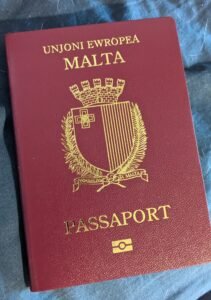
Exploring Malta: A Cultural and Historical Gem
Reconnecting with your Maltese ancestry might include visiting the islands to immerse yourself in local culture. With year-round sunshine, crystal-clear waters, and historic sites dating back to the Neolithic era, Malta offers a unique blend of old and new:
- Valletta
The capital city, a UNESCO World Heritage Site, is known for its Baroque architecture, fortifications, and vibrant cultural scene. - Mdina
Called the “Silent City,” Mdina’s narrow streets and medieval charm offer a glimpse into Malta’s rich past. - Gozo
Quieter and more rural, Malta’s sister island is famed for its scenic countryside, beaches, and the legendary Calypso Cave. - Cuisine
Local dishes like pastizzi (flaky pastry filled with ricotta or mushy peas), rabbit stew, and fresh seafood reflect Malta’s Mediterranean influences. - Festas and Traditions
Traditional village feasts celebrating patron saints are an essential part of Maltese culture, complete with fireworks, processions, and community gatherings.
By immersing yourself in Malta’s culture, you’ll not only better understand your ancestral roots but also gain a deeper appreciation for the heritage you’re reclaiming.
Real-Life Examples & Success Stories
Many Maltese descendants including myself have successfully navigated the ancestry route:
- Individuals from Australia with Maltese-born grandparents often cite the benefits of reconnecting with family, investing in property, and enjoying extended stays in Europe.
- Second-generation Maltese-Americans have praised the relative simplicity of the process, especially if their parents maintained Maltese passports or original birth certificates.
- Diaspora Maltese in the UK sometimes return to the islands for retirement, taking advantage of the favorable climate, healthcare, and community ties.
Learning from these experiences can offer inspiration and practical tips. You might find personal accounts through Maltese community forums, social media groups, or by contacting local Maltese cultural centers in your area.
References and Resources
While this blog post aims to provide an overview of the process I used, always verify details with official sources. Useful references include:
- Identity Malta – The main government agency responsible for citizenship and passport matters.
- Maltese Citizenship Act (Cap. 188) – Official legislation on Malta’s citizenship laws.
- Public Registry of Malta – Servizz.gov – For requesting civil status documents such as birth, marriage, and death certificates.
- National Archives of Malta – For historical and genealogical research.
- Local Maltese embassies or consulates in your country – They may have additional guidance and can serve as a liaison with Maltese authorities.
Practical Tips for a Smooth Application
- Organize Documents Early
Begin collecting birth certificates, marriage certificates, and other records as soon as possible. Older documents can take months to obtain, especially from overseas archives. - Maintain Open Communication
Keep lines of communication open with Identity Malta. Respond quickly to requests for additional information or clarifications. - Use a Professional Translator
If documents are in languages other than Maltese or English, hire a certified translator to ensure accuracy. - Double-Check Name Spelling Variations
If your family name changed slightly over generations, gather supporting evidence to prove it’s the same family line. - Stay Informed
Laws and regulations can change. Check Identity Malta’s website or consult an expert for the most current requirements.
Conclusion
Obtaining Maltese citizenship by ancestry can be a deeply rewarding experience that connects you to a storied cultural heritage while offering tangible benefits such as EU mobility and the advantages of a Maltese passport. The process hinges on thoroughly documenting your ancestral line, adhering to the formal requirements set by Identity Malta, and staying updated on evolving citizenship regulations. Although it may require time and effort—especially if you need to track down historical records—it is often well worth it.
As you contemplate your application, remember to gather all necessary documents, verify them carefully, and consult official resources or professional advisors for any complex legal matters. Whether your motivation is personal, professional, or purely practical, reclaiming your Maltese roots can open new doors and forge a connection that spans continents and generations.
Embark on your journey to Maltese citizenship by ancestry with confidence, knowing that a piece of the Mediterranean’s rich cultural mosaic may already flow through your family’s story. By obtaining Maltese nationality, you’ll not only gain a passport that grants broad global mobility but also become part of a community proud of its heritage and eager to welcome you home.

